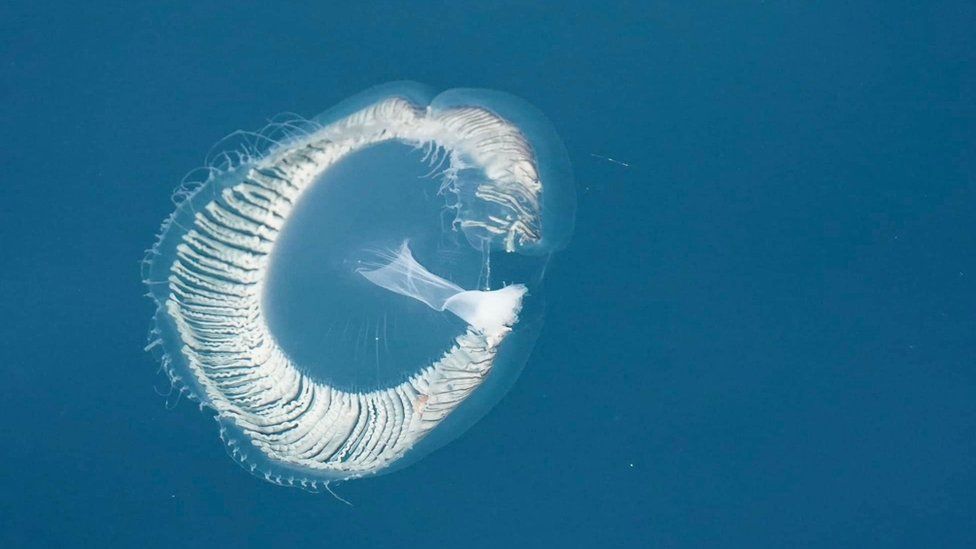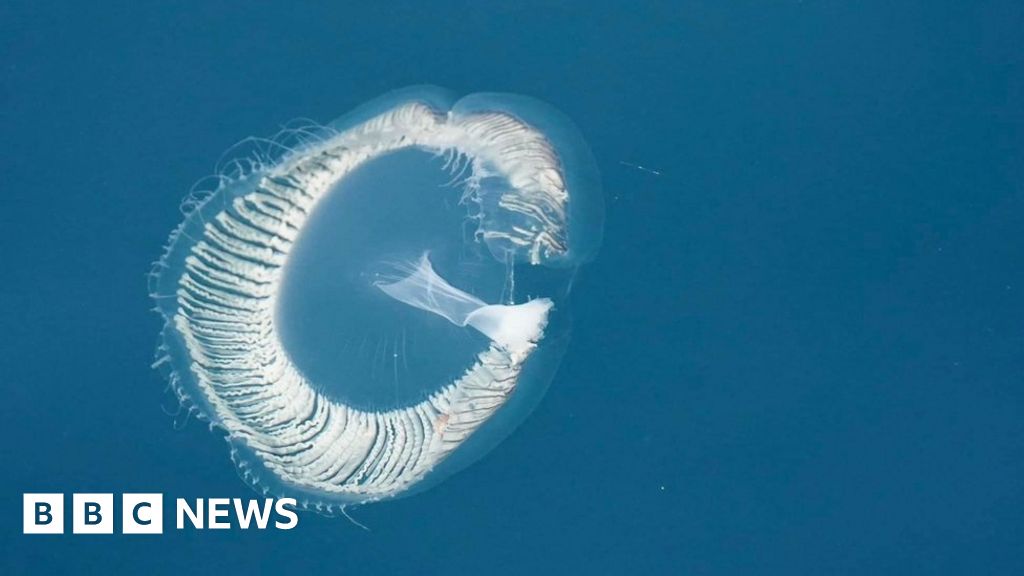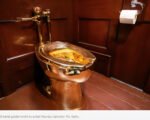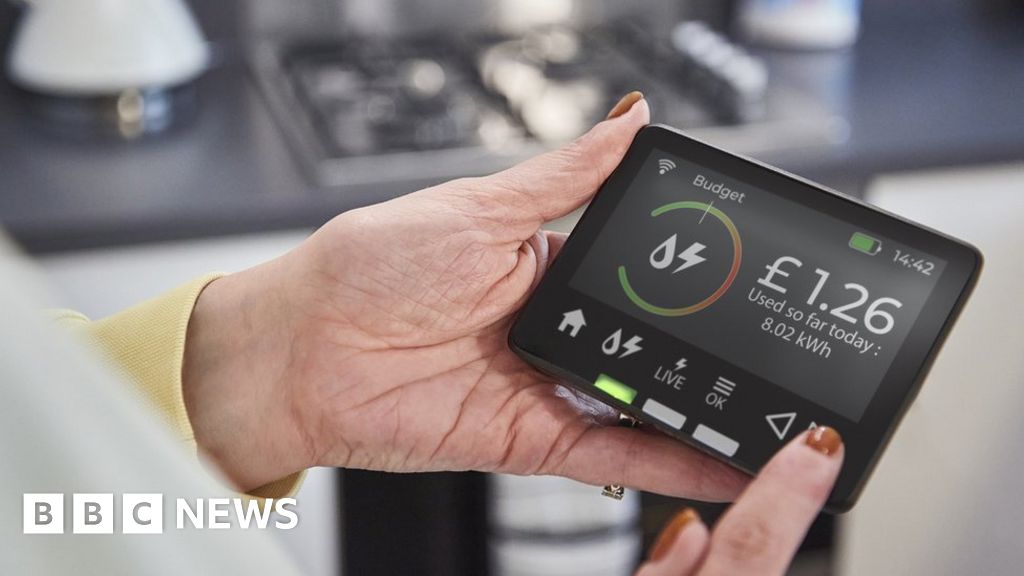
The Aequorea victoria is more commonly referred to as the “crystal jelly”, according to Cornwall Wildlife Trust
A rare type of jellyfish has been spotted off the coast of Cornwall.
Experts said there had been a “massive influx” of the Aequorea victoria, more commonly referred to as the “crystal jelly”.
The species, seen at Cadgwith, near the Lizard in west Cornwall, is more commonly found in Mediterranean waters.
In August there were also sightings around Alderney and Guernsey. Experts said the sightings were an “indicator of warmer seas”.
Image source, Helen Poulter
The crystal jellies were spotted in water at Cadgwith
Matt Slater, from Cornwall Wildlife Trust, said although they had stinging cells the animals were not powerful enough to harm humans.
Speaking to BBC Radio Cornwall, Mr Slater said: “For some reason, this year, we’ve had a massive influx all along the south coast.
“I was actually diving last week off the Lizard and there was a huge number of them and they were accumulating in the bays and forming almost a ceiling above us as we were diving underwater.”
Mr Slater said it was “boom or bust” with this type of species.
He said: “There’s either not many or there’s loads. This is because of their life cycle.
“They reproduce very rapidly and produce thousands of tiny larvae.
“In some years all of them will perish but in other years, when the conditions are different, they may all survive.
“That’s why you sometimes get all or nothing.”
Cornwall Wildlife Trust said the Aequorea victoria feed on plankton including marine plants and animal plankton.
Scientists at Plymouth’s Marine Biological Association working on the ‘Darwin Tree of Life Project’ have taken samples for DNA analysis to work out exactly which species is being recorded.
There are several species within the family Aequorea and the association said DNA analysis was the only way to accurately tell which species it was.
Follow BBC News South West on Twitter, Facebook and Instagram. Send your story ideas to spotlight@bbc.co.uk
Related Internet Links
The BBC is not responsible for the content of external sites.










